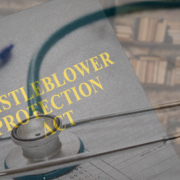Whistleblower Don’ts Every Employee Should Know
There’s no question that whistleblowing is a courageous and bold act. Employees who report illegal or unethical activity put themselves and their careers in the line of fire all for the purpose of improving work conditions. That’s why there are so many federal laws protecting whistleblowers. However, it’s important to go about whistleblowing in the appropriate way. Avoiding common mistakes can help you make this process as smooth as possible.
Looking for help after a whistleblower claim in Mobile, AL? If your employer has retaliated against you, don’t forget that you have rights. Let the team at Coumanis & York help. Call us at 251-336-3491 to set up a consultation with our team now.
Your Rights as a Whistleblower
Under federal law, you are protected from retaliation when you engage in protected activity. This includes reporting issues related to consumer product and food safety, discrimination, employee safety, FMLA, fraud and financial issues, health insurance, wage theft, and transportation services.
But how do you define retaliation? Retaliation is when an employer takes any type of adverse action against an employee because of their choice to engage in protected activity. This includes termination but also includes cutting hours, decreasing pay, isolating an employee, or harassing them.
If you’ve witnessed unethical or illegal behavior at work, there are some mistakes you should avoid. These tips can help you avoid making an already uncomfortable situation even more stressful.
Don’t: Discuss Your Concerns with Everyone
Once you’ve experienced something unethical at work, you may be shocked or even angry. Avoid the urge to talk about what you saw to everyone. When sensitive information is spread around, it morphs and takes on different forms—making it much harder to prove the truth of what actually happened. Furthermore, the more people you tell, the more likely it is that someone will spill the beans to the liable party. This gives them a chance to cover up what they’ve done or terminate you before you can make a report.
Don’t: Make Claims You Cannot Back Up
When you make a report, it is crucial to stick to facts that you know to be true. Don’t make a report based on a hunch or suspicion. If you don’t know something to be true or have some sort of evidence to back up what you’re saying, don’t include it in your report. Including unnecessary information, especially information you can’t back up, weakens the rest of your report and makes you a less credible whistleblower. If your hunches or suspicions are true, it’s likely that the agency’s investigation will uncover that information anyway.
Don’t: Focus on Your Feelings in Your Report
Reporting misconduct can lead to massive changes within an organization. Due to the importance of this task, you have to maintain your objectivity while making a report. This is even the case if you are reporting discrimination that has affected you. While the experience itself may have had devastating effects on you, stick to the actions and words you observed. Emotional language and subjective interpretations can weaken your report and make you appear biased. Try to avoid assuming why people said or did certain things; just report what you observed.
Don’t: Lose or Dispose of Evidence
Evidence is crucial in any whistleblower case. Whether you have e-mails, photos, or posted notices backing up your report, make sure you have copies of everything. Don’t keep copies on your work computer or work server—it’s way too easy for IT to go in and delete e-mails and photos. Ensure that you have copies of everything on your own devices.
Don’t: Be Afraid to Make a Report Out of Fear of Retaliation
It’s normal to be nervous when reporting misconduct. Don’t let fear keep you from doing the right thing; you have federal and state laws on your side, and doing the right thing can protect others from the consequences of your employer’s actions.
Has Your Employer Retaliated Against You? Call Coumanis & York Now
If your Mobile, AL employer has retaliated against you as a result of your protected activity, don’t wait any longer to explore your options. Let the team at Coumanis & York advocate for you. Call us at 251-336-3491 or send us a message online to get started.











Leave a Reply
Want to join the discussion?Feel free to contribute!